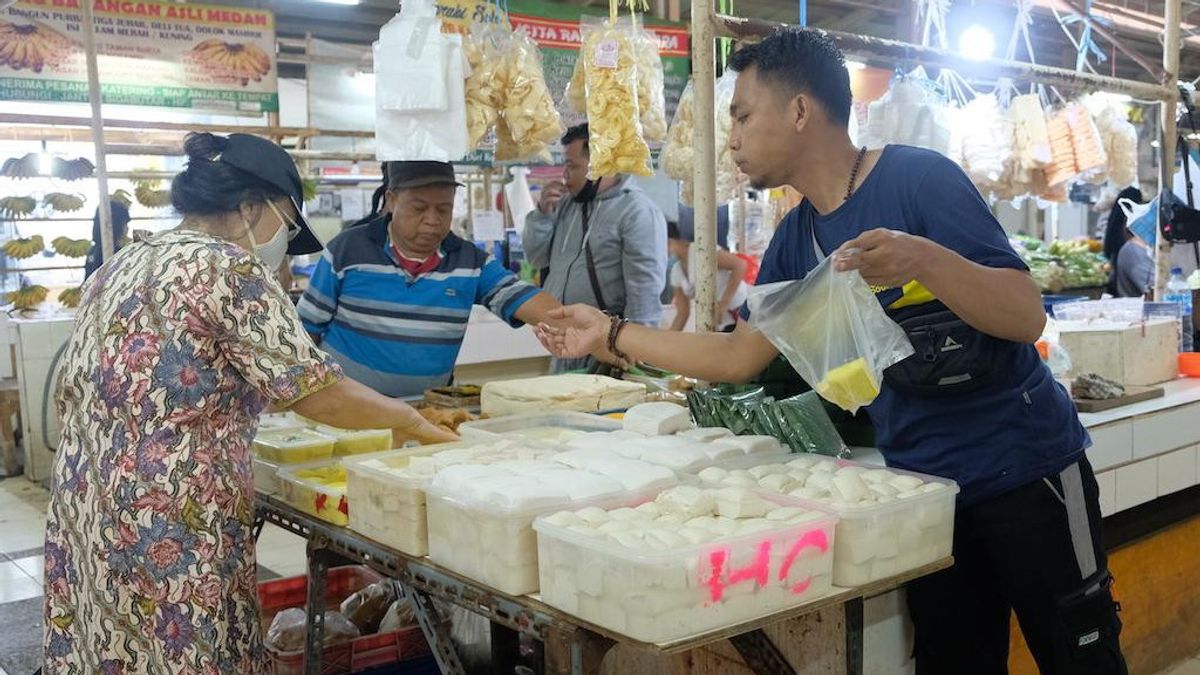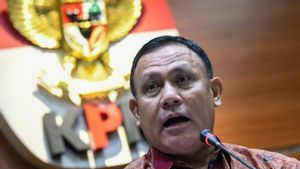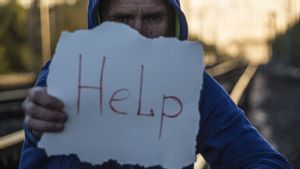
JAKARTA - Buying a car without taxes, buying groceries is subject to tax. The government's latest tax policy is in the spotlight. Even the latest findings show that educational services will also be subject to Value Added Tax (VAT) rates.
In the latest policy that took effect on March 1, the government provides incentives for the automotive industry sector. The policy is in the form of a tax discount of up to 100 percent or a sales tax on luxury goods (PPnBM) starting at zero percent for the purchase of a new car.
The tax applies to cars with a cylinder capacity of up to 1,500 cc and a minimum domestic component rate of 70 percent. The incentives are divided into three stages: zero percent PPnBM in March-May, 50 percent PPnBM in June-August, and 25 percent PPnBM in the September-December period.
Incentives succeed in provoking passion. Evidently, domestic car sales and production increased rapidly in the first quarter of 2021. However, in the latest policy, the government has set a tax rate for basic necessities through a value-added tax (VAT).

The plan is contained in the revision of the draft Law (RUU) Number 6 of 1983 concerning General Provisions and Tax Procedures (KUP) which is widely circulated. In Article 4A, the government seems to remove several types of goods that are not subject to VAT.
One thing that was removed from the provision was basic necessities. This means that basic necessities will be subject to VAT in the amount of 12 percent. If the government's intentions are smooth, the VAT on basic necessities will come into effect next year.
Basic necessities are regulated in the Minister of Finance Regulation Number 116/PMK.010/2017. The basic necessities include rice and unhulled rice; corn; sago; soy; consumption salt; meat; egg; milk; fruits; vegetables; sweet potatoes; spices; and sugar consumption.
And not just groceries. The government will also collect VAT rates for education or school services. This is stated in the same draft KUP, in which the government adds the type of education service to the sector that is subject to VAT. And the question of the 12 percent figure is stipulated in Article 7 paragraph 1. The increase in value from the original amount of 10 percent.
Capitalism by state

A public policy expert from Trisakti University Trubus Rahadiansyah sees this policy as the practice of capitalism by the state. And the government of Joko Widodo (Jokowi) or anyone else can't do this. Indonesia is not like the United States, Germany, or Britain which adheres to a capitalist economic system.
Indonesia adheres to a mixed economic system called the Pancasila economic system. There are reasons why Indonesia implements this economic system. Internal factors, including geographical location, physical condition, quantity, and quality of natural and human resources.
In addition, there are also external factors, namely technological developments, economic conditions, world politics, and global security. From these conditions, the Pancasila economic system was chosen because it contained the meaning of economic democracy. We dissect the characteristics.
The first characteristic is that Indonesia's economic activities are joint activities based on the principle of mutual cooperation by prioritizing family relationships. Second, the production branch which is strategic and concerns the livelihood of the people must be controlled by the state.
And all control over the production of strategic goods, both in the land and water of the archipelago, is used solely for the prosperity of the people. Furthermore, the economic activities carried out must comply with the principles of sustainability and environmental insight.
In addition, to ensure the principle of justice, the government is obliged to supervise all private activities - in general - to avoid fraudulent practices, such as fraud, monopoly, and interference with the trading mafia. In simple terms, the Pancasila economic system does not approve of all forms of exploitation, let alone the people.
"Indonesia cannot exploit its people. Indonesia is not a capitalist country. We were not built that way. We were built through an agreement. So for whatever reason we can't. So what is taxed is things that are not related to basic needs," said Trubus, contacted VOI, Thursday, June 10.
"That's a public policy that contradicts the 45 Constitution. Our country is a country whose term is that it's a matter of life for the needs of the people. It's the responsibility of the state. Education and basic necessities cannot be taxed," Trubus emphasized his previous remarks.
Reasons for VAT on groceries
Yustinus Prastowo, Special Staff to the Minister of Finance Sri Mulyani explained the basis for imposing VAT on basic necessities. According to Prastowo, many countries in the world are currently thinking about optimizing taxes for sustainability. One of them is VAT adjustment.
"There are 15 countries that have adjusted VAT rates to finance the handling of the pandemic. The average VAT rate for 127 countries is 15.4 percent. We are still at 10 percent," Prastowo explained in his explanation on Twitter social media.
Prastowo also explained that the government had reviewed and benchmarked with other countries regarding VAT. The results found that 24 countries set VAT rates above 20 percent, 104 countries in the range of 11-20 percent, and the rest below 10 percent.
The discourse of increasing the VAT rate received a warm response. This is a positive thing because awareness of the importance of taxes is getting higher. Tax is a pillar supporting the existence of the state. I need to share a wider context so that we can sit down all the discourse clearly. #thread
— Prastowo Yustinus (@prastow) June 9, 2021
Prastowo added that Indonesia's VAT revenue was not yet optimal. One of the reasons, according to Yustinus, is the many exceptions and facilities. In fact, he called Indonesia the country with the most exceptions.
"Intermezzo: it's so good, even many goods and services are excluded or get facilities without considering the type, price, and the group that consumes it. Be it rice, cooking oil, or health and education services, for example. Whatever the type and price, all are free!" he wrote.
Withdraw super high taxes from the super rich
Of course, there is, namely by charging super-high taxes on the super-rich. Is it fair? From an economic perspective, it's certainly fairer. We know that Indonesia is growing as the largest economic power in Southeast Asia.
Every year, the number of super-rich people -- that is, those with a net worth exceeding $1 million or Rp. 14.2 billion -- is increasing. This condition can actually be utilized by the government through optimizing tax revenues.
The taxes on the super-rich have to be raised. This method can be useful, considering the state deficit has reached Rp553 trillion. We understand that the national economic recovery budget is an effort to contain the impact of the pandemic, which is a serious burden on state finances.
And if you look back, Indonesia also experienced its first recession since 1998, with tax revenues only reaching 89.25 percent or Rp 1,019 trillion last year. That figure missed 10 percent of the target of Rp 1,198 trillion.
Quoting from The Conversation, Thursday, June 10, a study supports the idea of increasing taxes on the super-rich. And there is an added value from this method, namely that Indonesia is more likely to overcome inequality.
Through increased tax revenues, the government can redistribute the wealth of the super-rich through incentives or social assistance. The number of rich people in Indonesia continues to increase as the economy recovers.

A study by Knight Frank, a consulting firm in London predicts that there will be 21,430 high net worth individuals or people with a net worth of more than $1 million in 2020.
That number is predicted to increase by 110 percent to 45,063 in 2025. Still from the study, ultra-high net worth individuals or people with a net worth exceeding 30 million US dollars or Rp. 434.5 billion are predicted to number 673 people.
Their number in 2025 will increase rapidly by 67 percent to 1,125. With this figure, Indonesia will become the country with the fastest-growing number of super-rich individuals in Asia. This is ironic.
At the same time, the problem of poverty in Indonesia has become more serious in the last three years. The pandemic has hit this. In September 2020, there were 27.5 million poor people, or 10.19 percent of the nation's entire population.
Indonesia's Gini coefficient also rose, from 0.3 in 2000 to 0.4 in 2015. This is tantamount to an increase in inequality in income distribution. As a country with inequality problems, Indonesia ranks number six in the escalation of emergencies around the world.
The ratio is that the four richest people in Indonesia have more wealth than the 100 million poorest people combined. And as Bhima said, taxes are the most effective instrument of reducing income inequality and redistributing wealth from the rich to the poor.
We have a problem with taxes
Indonesia has a big problem in tax management. The ratio of tax to Gross Domestic Product aka the ratio of tax revenue to the country's overall economy is very low: 10.8 percent in 2018.
Try to compare it with other Southeast Asian countries. Singapore and Malaysia, for example, recorded tax-to-GDP ratios of 13.2 percent and 12.5 percent respectively in the same year.
Today Indonesia imposes a 30 percent income tax on residents earning more than IDR 500 million per year. This figure is far from ideal. Other countries, such as Japan and Sweden demand a 60 percent tax on the income of their citizens.
Meanwhile, in the United States (US), President Joe Biden also recently announced a proposal to raise income taxes for people who earn more than 1 million US dollars a year.
Looking at the conditions above, the government, in this case, the Ministry of Finance, still has room to raise the income tax up to 45 percent or 50 percent for the super-rich. Do it gradually.
*Read other information about ECONOMY or read other interesting articles from Yudhistira Mahabharata.
Other SOLID NEWS
另请阅读:
The English, Chinese, Japanese, Arabic, and French versions are automatically generated by the AI. So there may still be inaccuracies in translating, please always see Indonesian as our main language. (system supported by DigitalSiber.id)













